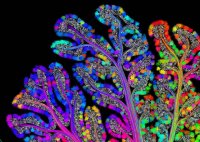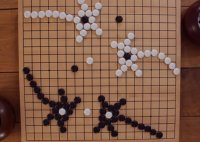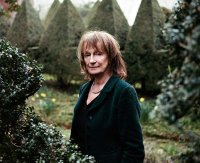
Happy 75th Birthday LSD! Amanda Feilding Reflects on Albert Hofmann in her Talk at Basel
On the 19th of April 1943, Albert Hofmann became the first person to ingest LSD – and the first person to discover its psychedelic effects. 75 years later, we can reflect on the profound effect this discovery has had on the disciplines of neurobiology and psychotherapy, and its tremendous influence on art and culture.
Through the war on drugs, the tragedy of prohibition had virtually stopped all scientific research into psychoactive drugs for over four decades. The psychedelic renaissance has seen a recent resurgence of scientific investigation into this most important compound, but LSD is still shrouded in taboo, making research extremely difficult. Despite this, Amanda Feilding and the Beckley Foundation are planning many future studies, in the hope that they will lead to LSD and other psychedelics becoming clinically-licensed medications.
At the 75 Years of LSD – Where Does This Trip Lead? symposium in Basel, organised by Peter Gasser and Lucius Werthmüller, Amanda delivered a video message in which she reflected on her memories of Albert as a friend and colleague. She also outlined the key findings of her groundbreaking psychedelic research with the Beckley Foundation, and her plans for the future of LSD. You can watch her message, ‘From Problem Child to Wonder Child: An Evolving Story’, below.
Click here for a transcript of Amanda’s talk.
Podcast
- All
Links
- All
Support
- All
BIPRP
- All
Science Talk
- All
Amanda's Talks
- All
- Video Talk
- Featured
- 2016 Onwards
- 2011-2015
- 2010 and Earlier
- Science Talk
- Policy Talk
One-pager
- All
Music
- All
Amanda Feilding
- All
Events
- All
Highlights
- All
Psilocybin for Depression
- All
Current
- All
Category
- All
- Science
- Policy
- Culture
Substance/Method
- All
- Opiates
- Novel Psychoactive Substances
- Meditation
- Trepanation
- LSD
- Psilocybin
- Cannabis/cannabinoids
- Ayahuasca/DMT
- Coca/Cocaine
- MDMA
Collaboration
- All
- Beckley/Brazil Research Programme
- Beckley/Maastricht Research Programme
- Exeter University
- ICEERS
- Beckley/Sant Pau Research Programme
- University College London
- New York University
- Cardiff University
- Madrid Computense University
- Ethnobotanicals Research Programme
- Freiburg University
- Medical Office for Psychiatry and Psychotherapy, Solothurn
- Beckley/Sechenov Institute Research programme
- Hannover Medical School
- Beckley/Imperial Research Programme
- King's College London
- Johns Hopkins University
Clinical Application
- All
- Depression
- Addictions
- Anxiety
- Psychosis
- PTSD
- Cancer
- Cluster Headaches
Policy Focus
- All
- Policy Reports
- Advisory Work
- Seminar Series
- Advocacy/Campaigns
Type of publication
- All
- Original research
- Report
- Review
- Opinion/Correspondence
- Book
- Book chapter
- Conference abstract
- Petition/campaign
Search type


